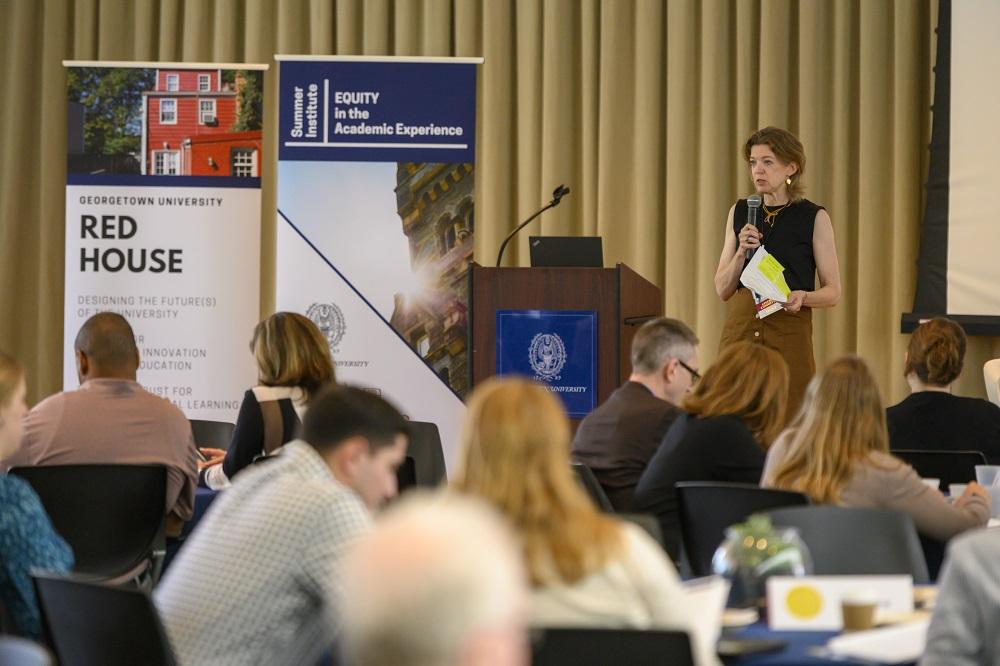Georgetown Hosts Summer Institute: Equity in the Academic Experience

On June 24-26, Georgetown hosted the first annual Summer Institute on Equity in the Academic Experience in conjunction with the University of Texas at Austin and the American Talent Initiative (ATI). With an ever-growing number of member colleges and universities, ATI was founded with the goal of substantially expanding opportunity and access for low and moderate-income students, aiming to educate 50,000 additional high-achieving, lower-income students by 2025. Although the Initiative acknowledges that there are “no simple answers or fixes,” it aims to give participants new ideas, resources, and connections to other campus communities.
Professor Heidi Elmendorf, Senior Advisor for Equity in Education to Georgetown President John J. DeGioia, remarked on the difficulties inherent in this process: “It is complicated to retool institutions that were not built with equity as their foundational principle. This difficult work is best done with focused attention in the company of other thoughtful, generative partners.” Elmendorf noted that the conference aligns with Georgetown’s long-standing legacy of work to improve equity in higher education.
Now celebrating 50 years of its Community Scholars Program and 15 years of the Georgetown Scholars Program, Georgetown is one of the private schools with the longest and most sustained commitment in the equity agenda of access and experience. Elmendorf noted, “Georgetown has taken leadership not because we think we have all the answers, but because we know that we’re seen nationally as a place that has put equity at the center of our mission.”
The Red House, under the leadership of Randall Bass (Vice Provost for Education), and The Hub for Equity and Innovation in Higher Education, led by Heidi Elmendorf, jointly organized opportunities for teams from eighteen public and private colleges and universities to discuss how to build the vision for an equitable campus, brainstorming solutions using the ‘to and through’ framework, seeking to find ways for higher education institutes to transform their campuses into more inclusive environments that both improve access for low-income students and help them succeed and thrive throughout their collegiate careers. Priorities included overcoming inequities in the admissions process, getting students to and through first-year STEM coursework, addressing hidden inequities on campus, student-facing services, and supporting student transfer and migration patterns. Georgetown’s team was led by Adanna Johnson and included the combined expertise of Sue Lorenson, Javier Jiminez Westerman, Devita Bishundat, Emily Rosenfeld, and Joselyn Schultz Lewis.
Sources:
What does the future of equitable education look like?
